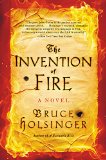Summary | Excerpt | Reviews | Beyond the Book | Readalikes | Genres & Themes | Author Bio

Critics' Opinion:
Readers' Opinion:
First Published:
Apr 2015, 432 pages
Paperback:
Feb 2016, 384 pages
 Book Reviewed by:
Book Reviewed by:
Sinéad Fitzgibbon
Buy This Book
"Gower," he said.
I opened my mouth to speak, closed it against a gathering stench, and then I saw the dead. A line of corpses, arrayed in the trench like fish on an earl's platter. All were men, all were stripped bare, only loose braies or rags wrapping their middles. Their skin was flecked with what looked like mud but smelled like shit, and gouged with wounds large and small. At least five of them bore circular marks around their necks in a dull red; from hanging, I guessed. My eyes moved slowly over the bodies as I counted. Eight, twelve—sixteen of them, their rough shrouds still open, waiting for a last blessing and sprinkle from a priest.
"Who are they?" I asked Strode.
The silence lengthened. I stood there, the rot mingling with the heavy buzz of feeding flies. Finally I looked up.
"We don't know." Strode watched for my reaction.
"You don't know?"
"Not a soul on the inquest jury recognized a one of them."
"How can sixteen men die without being known, whether by name or occupation?"
"Or rank, or ward, or parish," said Strode. He raised his big hands, spread his arms. "We simply don't know."
"Where were they found?"
"In the Walbrook, down from the stocks at Cornhill. Beneath that public privy there."
"The Long Dropper," I said. Board seats, half a door, a deep and teeming ditch. "And the first finders?"
"A gongfarmer and his son. Their crew were clearing out the privy ditches. Two nights ago this was, and the bodies were carted here this morning by the coroner's men. Before first light, naturally." My gaze went back to the bodies. "An accident of some kind? Perhaps a bridge collapse? But surely I would have heard about such a thing."
"Nothing passes you by, does it, Gower?"
Strode's tone was needlessly sharp, and when I looked over at him I could see the strain these deaths were placing on the man. He blew out a heavy sigh. "It was murder, John. Murder en masse. These men met violent deaths somewhere, then they were disposed of in a privy ditch. I have never seen the like."
"The coroner?"
"The inquest got us nowhere. Sixteen men, dead of a death other than their natural deaths, but no one can say of what sort. They certainly weren't slashed or beaten."
"Nor hung by the neck," said the older of the two men standing behind us.
Strode turned quickly, as if noticing the pair for the first time, then signaled the man forward. "This is Thomas Baker and his apprentice," he said. "Baker here is a master surgeon, trained in Bologna in all matter of medical arts, though now lending his services to the hospital here at St. Bart's. I have asked him to inspect the bodies of these poor men, see what we can learn."
"Learn about what?" I said.
"What killed them."
Strode's words hung in the air as I looked over Baker and the boy beside him. Though short and thin the surgeon stood straight, a wiry length of a man, hardened from the road and the demands of his craft. His apprentice was behind him, still and obedient.
"Surely you're not thinking of the Italian way," I said to Strode. His jowls shook. "Even in this circumstance the bishop won't hear of dissection. You know Braybrooke. His cant is all can't. Were these sixteen corpses sixteen hundred we'd get no dispensation from the bishop of London. Far be it from the church to sanction free inquiry, curiositas, genuine knowledge." A familiar treatise from Ralph Strode, a former schoolman at Oxford, and I would have smiled had the circumstances not been so grim. He looked at Baker. "Our surgeon here is more enlightened. One of these moderni, with ten brains' worth of new ideas about medicine, astronomy, even music, I'll be bound."
"What makes you believe these men weren't hung?" I asked the surgeon. "Those red circles around some of their necks? I would think the solution is apparent."
Excerpted from The Invention of Fire by Bruce Holsinger. Copyright © 2015 by Bruce Holsinger. Excerpted by permission of William Morrow. All rights reserved. No part of this excerpt may be reproduced or reprinted without permission in writing from the publisher.




The good writer, the great writer, has what I have called the three S's: The power to see, to sense, and to say. ...
Click Here to find out who said this, as well as discovering other famous literary quotes!
Your guide toexceptional books
BookBrowse seeks out and recommends the best in contemporary fiction and nonfiction—books that not only engage and entertain but also deepen our understanding of ourselves and the world around us.